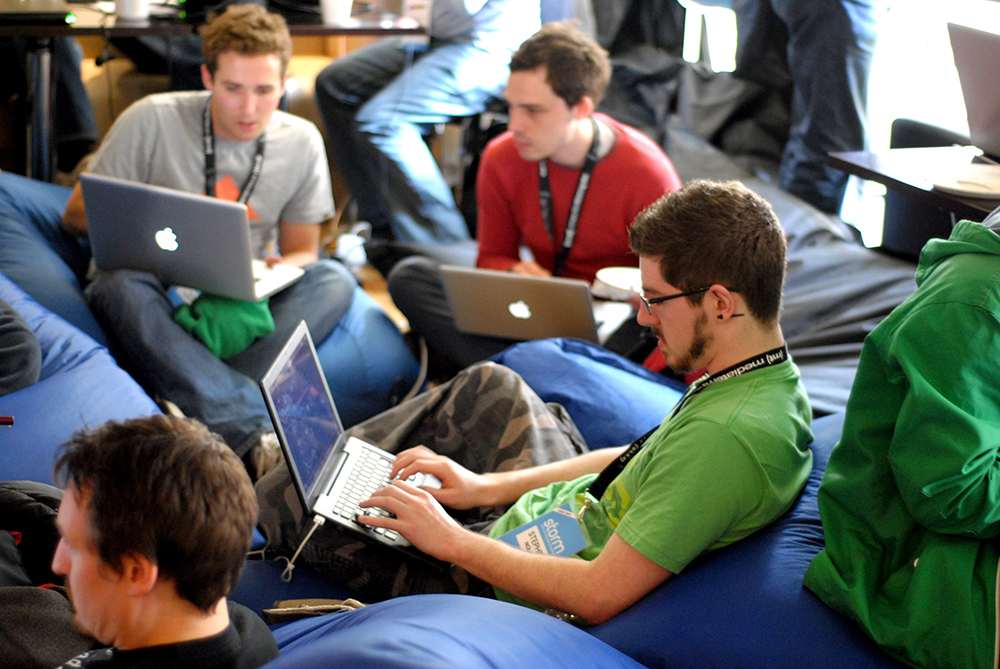
European Union leaders agreed on a massive stimulus plan for their coronavirus-blighted economies at a pre-dawn meeting on Tuesday after a fractious summit that lasted almost five days.
Summit chairman Charles Michel tweeted Deal shortly after the 27 leaders reached agreement at a 4am plenary session.
This agreement sends a concrete signal that Europe is a force for action, Ms Michel said at a dawn news conference
It is about a lot more than money. It is about workers and families, their jobs, their health and their well-being. I believe this agreement will be seen as a pivotal moment in Europes journey, but it will also launch us into the future.
French president Emmanuel Macron said the deal was historic and said he was convinced the recovery plan and budget could meet the challenge of the coronavirus pandemic.
Officials said the deal, which came after Mr Michel presented compromises on a 750 billion recovery fund, is critical to dispel doubts about the blocs very future.
News of the deal saw the euro rise to a fresh four-month high of $1.1470.
The EU was slow to co-ordinate its initial response to the COVID-19 pandemic and, already weakened by Britains departure from the bloc, a united front on economic aid would demonstrate that it can step up to a crisis and stay united.
Habemus papam! #EUCO
— Naomi O’Leary (@NaomiOhReally) July 21, 2020
“This recovery fund that is based on European solidarity is indeed a historic change, a historic step for Europe,” says Emmanuel Macron. “It needed a spirit of compromise to make this happen and I want to thank all colleagues that have show this.” #EUCO
— Naomi O’Leary (@NaomiOhReally) July 21, 2020
Merkel notes there may be “very difficult discussions” with the European Parliament, which has threatened to veto a deal if budget was not increased.”I hope that colleagues in the European Parliament have seen that we wrestled with each other to come up with a solution.” #EUCO
— Naomi O’Leary (@NaomiOhReally) July 21, 2020
Taoiseach Micheál Martin after a last roundtable discussion following a four days European summit at the European Council in Brussels, Belgium, early on Tuesday. Photograph: Getty
It has been a long summit and a challenging summit…, Taoiseach Minister Micheál Martin said as the Brussels summit approached the record length set at a 2000 meeting in the French city of Nice of almost five full days.
European nations have done a better job of containing the coronavirus than the United States after a devastating early few months that hit Italy and Spain particularly hard, collaborating on medical, travel and economic fronts.
The European Central Bank has pumped unparalleled money into economies to keep them going, while capitals hammer out their recovery fund.
Diplomats said the leaders appeared to put aside the rancour that stood in the way of a compromise over hours of haggling through the weekend.
Emotions had ran high at a dinner on Sunday as a group of fiscally frugal northern nations led by the Netherlands stood their ground on the level of free grants within a proposed special recovery fund of 750 billion.
French president Emmanuel Macron lost patience in the early hours of Monday, banging his fist on the table in frustration at sterile blockages by the frugals, two diplomats said.
Polish prime minister Mateusz Morawiecki also railed against the frugals, branding them a group of stingy, egotistic states that looked at things through the prism of their own interests.
Poland would be a top beneficiary of the recovery package, receiving tens of billions of euros in grants and cheap loans, along with high-debt Mediterranean-rim countries that have taken the brunt of the pandemic in Europe.
But the rhetorical skirmishing faded on Monday, and the leaders homed in on an agreement on the stimulus package and, linked to it, the EUs 2021-2027 common budget of around 1.1 trillion.
Hopes for a deal to help address Europes deepest recession since World War Two sent Italys borrowing costs to their lowest since early March and pushed the euro to a 19-week high.
Mr Michel proposed that within the 750 billion recovery fund, 390 billion should be non-repayable grants, down from 500 billion originally proposed, and the rest in repayable loans.
The Netherlands had pushed for a veto on aid for countries that backslide on economic reform, but diplomats said it was now willing to back a stop-the-clock mechanism by which member states could put a brake on disbursements for three months and have them reviewed.
Disbursements will also be linked to governments observing the rule of law. Hungary, backed by eurosceptic ally Poland, had threatened to veto the package if funds were made conditional on upholding democracy, but diplomats said a way forward on that was found. – Reuters





More Stories
The South Australian government has promised to deliver the “biggest hit of economic adrenalin in South Australian history” in Tuesday’s budget.
Boris Johnson will proceed with his controversial Brexit bill despite US president-elect Joe Biden having previously warned the UK over the draft legislation.
Singapore-based Nektar.ai, a productivity platform for sales teams, has raised $2.15 million in seed funding. Founded earlier this year, Nektar has been working in stealth mode with five companies, and has plans for an early adopter release before a public la…